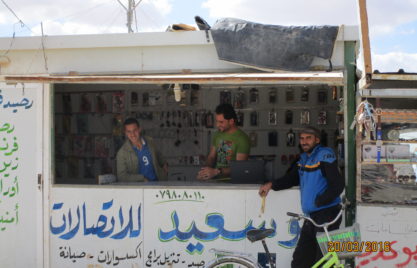A newly established financial inclusion steering committee endorsed the foundation of Jordan’s financial inclusion policy process in July this year. The Central Bank went on to form working groups of numerous public, private and civil society players across all sectors to develop a financial inclusion strategy for the Kingdom.
The Government of Jordan and the Central Bank of Jordan (CBJ) take the next step in addressing the gaps in access to finance for vulnerable people and for businesses alike, aiming at financial sector stability, economic and social development. Mandated by Jordan’s Prime Minister, high ranking government officials followed the CBJ Governor’s invitation for the national Financial Inclusion Steering Committee’s first meeting on July 13, 2016. The committee endorsed its new governance structure, the roadmap and the technical basis to take on the country’s mission to prepare and implement the national strategy for financial inclusion.
Following up on this, on September 25, around fifty public, private and civil society players from various domains of the financial system were asked to participate in the development of the financial inclusion strategy followed by its operationalization and implementation. The CBJ Governor, H.E. Dr. Ziad Fariz, commenced the launch of this national task, underlining its priority:
“It is a right for everyone to have access to financial services. The level of financial inclusion in Arab countries is about 25 to 30% […]. We need to enhance access to adequate financial services by improving the financial literacy of people while enabling and supervising providers to increase financial sector stability.”
GIZ reported on the global trends, highlighting that national strategies have proven to help achieve better financial inclusion outcomes. The Bank’s executive management briefed their counterparts from ministries, associations, and NGOs on the foundations of the consultative policy process in the forthcoming weeks, months and years. Together they will partner up in six working groups for payments, microfinance, SME finance, financial education, financial consumer protection, and data. And their first consultations have provided them with valuable insights into the bottlenecks and prospects for financial inclusion on policy and market level, which will help to craft in a first step a vision for the future strategy. GIZ will empower the pioneering work done in this national endeavor.
Atilla Kaiser-Yuecel, GIZ and Amr Ahmad, CBJ – Amman, October 29th, 2016



